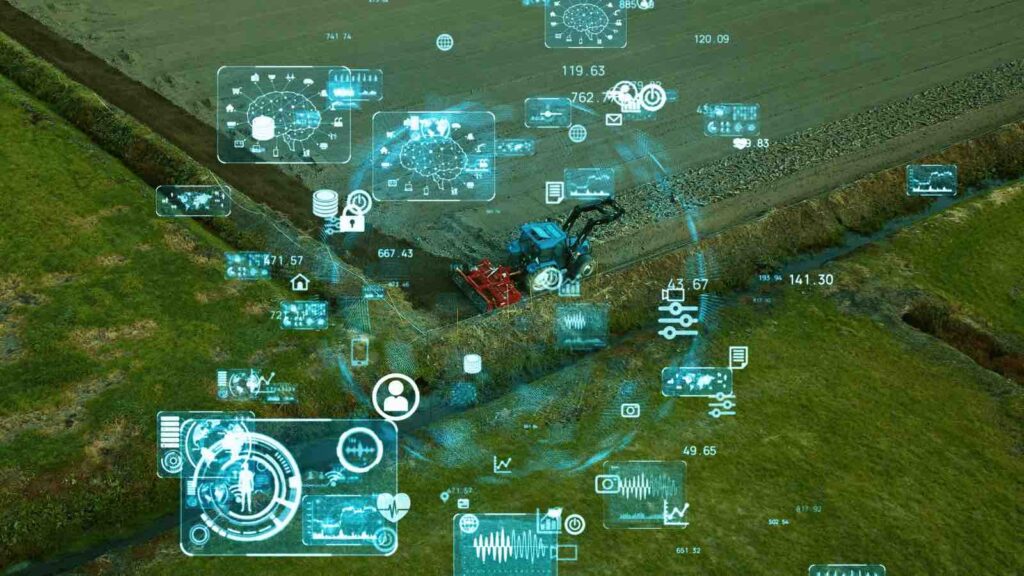How can we ensure AI’s benefits reach every farmer, especially those in remote areas? AI in agriculture isn’t solely about the tech—it’s about people, communities, and shaping a sustainable and equitable future for our food systems.
Imagine a future where robots glide through fields, self-driving tractors plow the earth, and drones monitor crops from above. This isn’t a scene from a sci-fi novel; it’s the reality of today’s AI-powered farms. AI is transforming agriculture, promising unprecedented efficiency and insights into soil health and planting schedules.
RELEVANT SUSTAINABLE GOALS



AI-Driven Agriculture : Pathway to Prosperity or Barrier to Inclusion?
As we marvel at these technological advances, it’s crucial to address the looming challenges that could potentially sideline farmers. The most formidable barrier is cost. High-tech equipment and software, along with their maintenance, could be prohibitively expensive for many farmers. Additionally, the lack of reliable internet connectivity in rural areas poses a significant hurdle, hampering the collection and transmission of essential data for AI to be effective.
Data quality itself is another concern. AI’s reliability heavily depends on the quality of data it’s fed, and inconsistencies or inaccuracies can lead to flawed decision-making. Moreover, the “one-size-fits-all” approach of off-the-shelf AI solutions may not cater to the unique needs of each farm, necessitating costly customizations.
Education is key. Farmers must be adept at using AI technologies, necessitating comprehensive training programs. And then there’s the issue of food costs. If AI integration makes farming pricier, it could have far-reaching effects on food prices and security.
Furthermore, there’s a risk that AI could primarily benefit large corporations, exacerbating the divide between wealthy and small-scale farmers. This raises ethical concerns about access, power dynamics, and equity in benefiting from AI advancements.
Data privacy, ownership, and the potential for job losses due to automation are additional factors that need careful consideration.
However, the path forward isn’t bleak. Through affordable technology, dedicated training programs, and collaborative efforts among governments, research institutions, and the private sector, AI can become a powerful tool for small farmers too.
But let’s remember, AI in agriculture isn’t solely about the tech—it’s about people, communities, and shaping a sustainable and equitable future for our food systems.Let’s envision a future where technological innovation serves everyone, nurturing a more sustainable and just food ecosystem. The future of agriculture is in our collective hands, and together, we can cultivate prosperity for all.
Lead image courtesy of Metamorworks from Getty Images
You may also be interested in :
GrowHer : Encouraging Women in Agriculture


